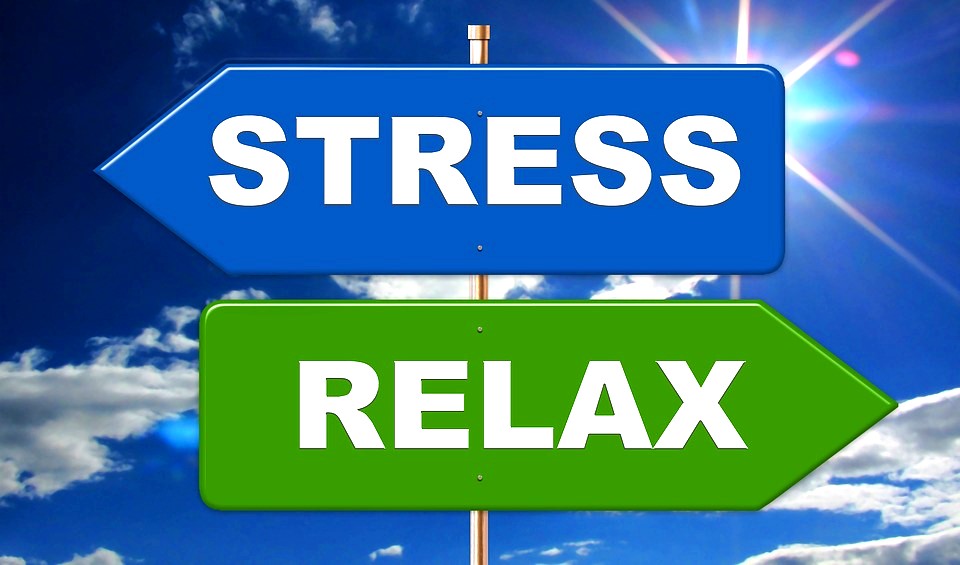
Learn How to Relax from Stress: Effective Strategies for a Calmer Mind. Explore deep breathing, mindfulness, exercise, and more. Find inner peace today.
In today’s fast-paced world, stress has become an everyday companion for many individuals. Whether due to work pressures, personal challenges, or the demands of modern life, Maintaining health requires finding methods to decompress and unwind for overall well-being. In this article, we’ll delve into effective strategies that can help you relax from stress and achieve a calmer, more peaceful state of mind.
Stress is a normal reaction to the difficult circumstances, but when it persists for an extended period of time and tide, it can harm your physical and mental health. Understanding its effects is crucial for taking steps toward managing it effectively.
Contents
The Importance of Relaxation

Relaxation isn’t just a luxury; it’s a necessity for maintaining your overall well-being. Regular relaxation can help reduce the production of stress hormones, lower blood pressure (low BP), and improve sleep quality. It also allows your mind and body to recover, promoting a sense of balance and vitality. Learn How to Relax from Stress: Effective Strategies for a Calmer Mind.
Read more: The Best Methods to Get Healthier
Practical Ways to Relax From Stress
Deep Breathing Exercises
One of the simplest yet most effective ways to calm your mind is through deep breathing. Find a quiet space, sit or lie down comfortably, and take slow, deep breaths. Inhale for a count of four, hold for four and exhale for a count of six. Let us Learn How to Relax from Stress: Effective Strategies for a Calmer Mind. Repeat this pattern for several minutes to activate your body’s relaxation response.
Mindfulness Meditation
In mindfulness meditation, you concentrate your attention on the here and now without passing judgment. Close your eyes, settle into a comfortable position, and concentrate on your breathing. When your thoughts begin to stray, gently nudge them back to your breathing. Regular practice can help reduce stress and enhance your ability to stay present.
Engaging in Physical Activities

Physical activities like jogging, swimming, or dancing release endorphins, which are natural mood lifters. Exercise also helps reduce muscle tension and improves your overall physical health, contributing to stress reduction. Learn How to Relax from Stress: Effective Strategies for a Calmer Mind.
Creative Outlets: Art and Music
The ability to convey one’s emotions can be achieved through creative endeavors like painting, drawing, or playing an instrument. These activities engage different parts of your brain and offer a meditative-like experience that promotes relaxation.
Connecting with Nature
Spending time in nature has been shown to have a calming effect on the mind. Go for a stroll in the park or a walk in the forest, or simply sit by a river to experience the soothing power of the natural world. We are learning How to Relax from Stress: Effective Strategies for a Calmer Mind.
Socializing and Spending Time with Loved Ones
Social connections play a significant role in stress reduction. Please spend time with loved ones and friends, have important talks while you’re there, and enjoy the support of those who care about you.
Healthy Sleep Habits
Quality sleep is essential for managing stress. Keep a regular sleep pattern and make your bedroom comfy, and practice relaxation techniques before bedtime to improve sleep quality.
Progressive Muscle Relaxation
This unique technique involves tensing and then releasing different muscle groups in your body. It helps relieve physical tension and promotes a deep state of relaxation.
Aromatherapy and Relaxing Scents
Calming effects can be found in some smells like lavender and chamomile. Also use the scented candles or essential oils to make an environment of calming environment in your house.
Incorporating Relaxation into Daily Routine
Creating a Relaxation Space
Designate a specific area in your home where you can unwind and relax. Fill it with comfortable furnishings, soft lighting, and items that bring you joy.
Setting Boundaries: Learn to Say No
Overcommitting can lead to increased stress. Let us learn to set healthy boundaries by saying no to tasks or responsibilities that don’t align with our priorities.
Digital Detox: Unplugging from Technology
Constant connectivity can contribute to stress. Take regular breaks from screens and engage in activities that don’t involve technology.
Practicing Gratitude
Cultivating a sense of gratitude may shift your focus away from stressors. Start a gratitude journal or take a few moments each day to reflect on what you’re thankful for.
Mind-Body Practices for Stress Relief
Yoga and Stretching

Yoga combines gentle movement with focused breathing, promoting relaxation and flexibility. Regular practice can help alleviate physical and mental tension. Learn How to Relax from Stress: Effective Strategies for a Calmer Mind.
Tai Chi for Inner Harmony
Tai Chi is a slow-motion martial art flowing movements. It enhances mindfulness, balance, and tranquility, making it an excellent practice for stress reduction.
Professional Support and Help
If stress becomes overwhelming, seeking professional help is important. A counselor or therapist can offer advice and tools to manage stress effectively.
Conclusion: How to Relax from Stress
In a world filled with demands and pressures, finding ways to relax from stress is essential for maintaining your well-being. You can develop a calmer daily routine by implementing these techniques, a more peaceful mindset, and lead a healthier, happier life.
FAQs
Is stress always harmful?
Stress is a natural response, but chronic stress can have negative effects on your health. Learning to manage stress is important for overall well-being.
Can relaxation techniques replace medical treatment?
Relaxation techniques can complement medical treatment but should not replace it. Consult a healthcare professional for personalized guidance.
How often should I practice relaxation exercises?
Consistency is key. Aim for daily practice or as often as needed to experience the benefits of relaxation. Learn How to Relax from Stress: Effective Strategies for a Calmer Mind.
Can I do these techniques while at work?
Yes, many relaxation techniques can be practiced discreetly at work. Short breaks for deep breathing or mindfulness can help manage work-related stress.
Are there any quick relaxation techniques for immediate relief?
Yes, deep breathing and progressive muscle relaxation are quick techniques that can provide immediate relief from stress and tension.






